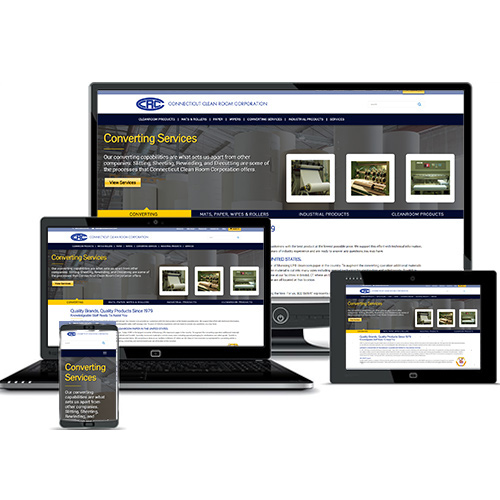
Buying manufacturing goods and services is not like buying a new pair of shoes. It’s never a matter of “liking” a product, but rather determining if the product is right for your application. With that in mind, let’s look at the foundation of a successful website for a manufacturer or a company that provides manufacturing services.
What does the specifier need to know?
In many cases the specifier is an engineer of some type. This engineer needs some specific information about the product or service that you are offering to determine if it’s right for his/her application. Don’t be afraid to put out white papers, technical bulletins and/or data sheets about your products. If you’re concerned that a competitor may take the information, then simply put it behind a secure log-in, but be sure to have enough public information to encourage the right engineer to want to log into your secure area to download the resources.
What does the buyer need to know?
Often the buyer only knows what the requisitioner is asking for. If the buyer
doesn’t have enough knowledge of the product or service you’re offering, they
could go out to bid for “equivalent” products or services. While this can
benefit a company if there is a more economical or reliable product than what
was used for the specification, it can also turn out that they are not really “equal”.
It’s important to make sure that the engineer and the buyer are aware of what makes your product(s) or service(s) different than other, similar ones. The right information can help avoid that “bidding” war and the potential customer ending up with an inadequate product or service for their needs.
Communication is Key
Your website should make it easy for anyone: buyer, specifier, or engineer to be
able to get information. Online chat, easy-to-access forms, quote carts, toll-free
phone number, information available for download – all are critical in closing
that sale. If a potential customer has to “leave a message” the risk of losing
him or her goes up significantly. While they’re waiting for your response they
may “stumble” onto another provider that appears to be offering the same or
similar things.
Since you can’t be working 24/7 you may want to consider some marketing automation. The site visitor completes a form which automatically dispenses information to them based on their inquiry. The message can also point out your regular office hours, should they need to contact you personally. This message should be followed up as soon as possible with a more personal message from your sales team. This won’t entirely dismiss the risk of losing them to a competitor, but it can make you appear more responsive which may give them second thoughts about another company’s service.
Your website is your front-office sales team
The way it looks, operates, and communicates is essential in helping you close
deals. While the site itself cannot close the deal unless it’s an e-commerce
site, it can go a long way in qualifying and providing you with potential new
business.
